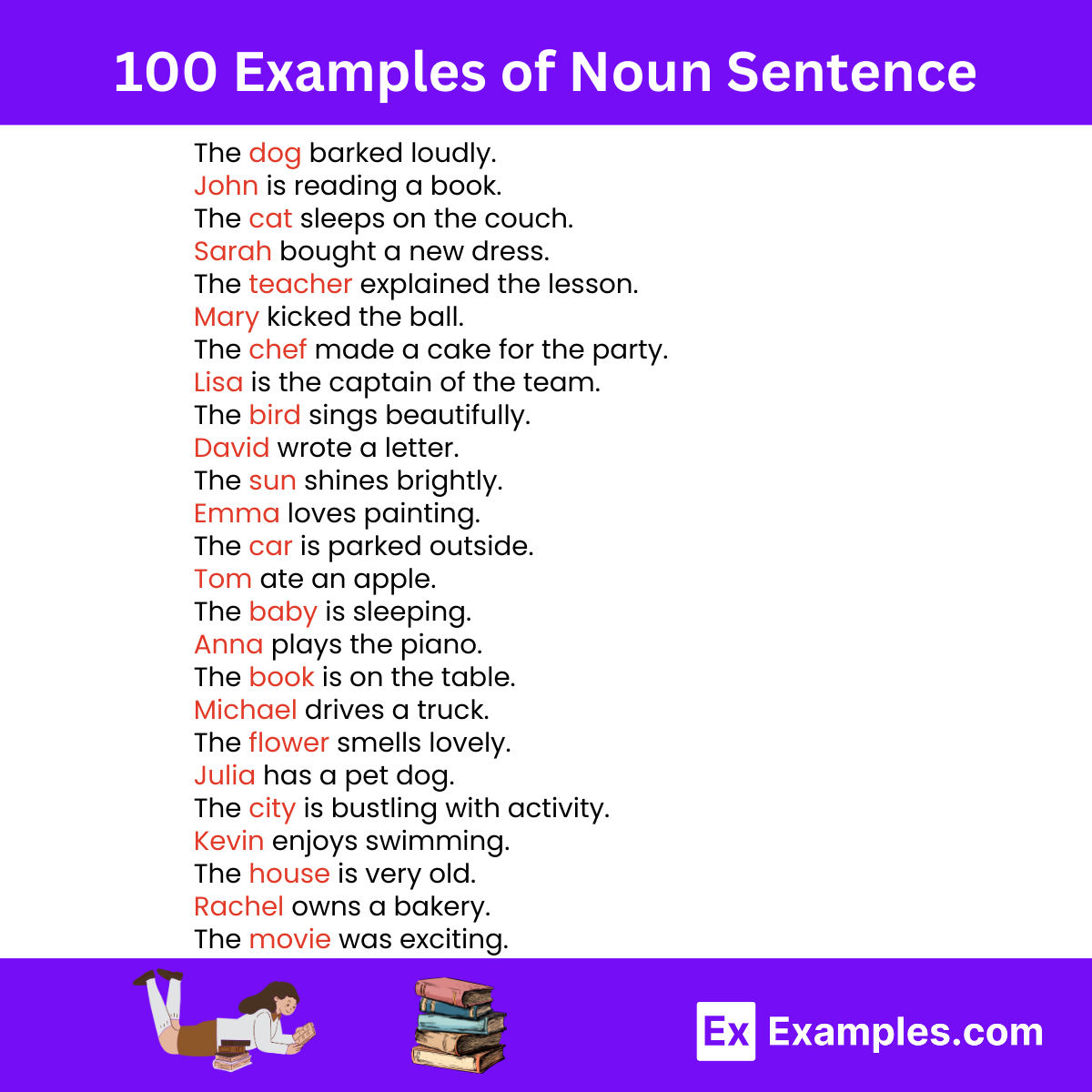Nouns are an essential part of speech in the English language. They are words that are used to name people, places, things, or ideas. Nouns can be singular or plural, concrete or abstract. Understanding how nouns are used in sentences is crucial for effective communication.
In this article, we will explore various examples of nouns in sentences to better understand their role and usage.
Examples of Nouns in Sentences
1. The dog chased the cat up the tree.
2. She bought a new car yesterday.
3. The sun sets in the west.
4. Education is the key to success.
5. The mountains are covered in snow.
Nouns can serve as subjects, objects, or complements in a sentence. They help to provide clarity and specificity to the words being used. In the examples above, “dog,” “cat,” “car,” “sun,” “success,” and “mountains” are all nouns that name specific things or concepts.
Concrete nouns, such as “dog,” “cat,” and “car,” refer to things that can be physically seen or touched. Abstract nouns, like “success” and “education,” represent ideas or concepts that are not tangible. Both types of nouns play important roles in sentence structure and meaning.
It is essential to use nouns correctly in sentences to convey your intended message clearly. By understanding the different types of nouns and how they function in sentences, you can improve your writing and communication skills.
In conclusion, nouns are foundational elements of language that help us to identify and describe the world around us. By incorporating various examples of nouns in sentences, we can enhance our ability to express ourselves effectively. Practice using nouns in your writing to strengthen your language skills and communicate more precisely.
